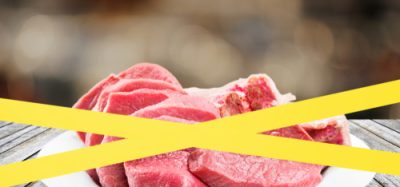Fish fraud threat needs to be addressed, says Acoura
- Like
- Digg
- Del
- Tumblr
- VKontakte
- Buffer
- Love This
- Odnoklassniki
- Meneame
- Blogger
- Amazon
- Yahoo Mail
- Gmail
- AOL
- Newsvine
- HackerNews
- Evernote
- MySpace
- Mail.ru
- Viadeo
- Line
- Comments
- Yummly
- SMS
- Viber
- Telegram
- Subscribe
- Skype
- Facebook Messenger
- Kakao
- LiveJournal
- Yammer
- Edgar
- Fintel
- Mix
- Instapaper
- Copy Link
Posted: 17 November 2015 | Victoria White | No comments yet
Acoura’s Martin Gill warns that there needs to be greater focus on the growing threat of fraud in the fish supply chain…


Managing Director of Food Safety Specialist Acoura’s Marine Division, Martin Gill, has warned that there needs to be greater focus on the growing threat of fraud in the fish supply chain.


Coley, or not coley…
Martin Gill explained: “2013’s Horsegate may go down as a watershed moment in the battle against food fraud for the red meat supply chain, but its undoubted impact on the wider industry has done little to quell uncertainties over provenance in the fish sector.
“Just recently NGO Oceana carried out 280 DNA tests on fish at restaurants located across the Belgian capital of Brussels. The results were startling, with one fish dish in every three mislabelled. The issues weren’t restricted to any individual species either. For example hake was regularly found to be saithe and only 5% of bluefin tuna dishes were genuine, with the likes of swordfish being used as a substitute.
“Fish fraud isn’t restricted to speciation issues with white fish either. Another study by Oceana in the US revealed that of 82 samples of salmon taken from retailers and restaurants 50% had been mislabelled. Their DNA testing concluded that of the mislabelled fish, over two thirds were being sold as wild when they were in fact farmed. Though restaurants were the primary culprit, just under 10% of the instances were recorded at retailers.
“While most consumers will be primarily concerned that they could be paying top price for inferior or cheaper fish, there is also a very real public health risk. For example, many fish with high mercury levels are being passed off as low-mercury level fish and there have been instances of the highly toxic pufferfish being used as a substitute for monkfish.
“These developments are leading to increased concerns from manufacturers, retailers and hospitality providers over the security and reliability of their supply chain. With consumer interest and demand for genuinely sustainably caught fish growing rapidly, the threat from fraud represents a very real reputational risk to all those involved in the supply chain.”
Businesses can look for certified fish or use a 3rd party specialist for spot check inspections
Martin Gill continued: “While tackling the issue will take a concerted effort from companies and organisations working across the sector, there are ways your business can help to protect itself and its customers.
“Simple steps like buying certified fish can give you some assurances about provenance and product quality. Within the fisheries sector the MSC label is the most highly regarded seal of quality and sustainability and has a transparent chain of custody which traces certified fish from sea to fork.
“Businesses with deeper concerns may want to look at using a 3rd party specialist for a spot check inspection of their supplier’s sites. These can usually give you a good overview of the business you are buying from, while also providing an opportunity for identified issues to be addressed.
“Depending on the size of your business random DNA tests may also be worth exploring, though costs and frequency can make this a less appealing prospect.
“With fish growing in importance as a global food source the risks that some suppliers will look to pass off easier to source catches as something they’re not will likely increase. Those involved in the supply of fish need to start working towards ensuring they have a secure supply chain and that their customers are protected.”








